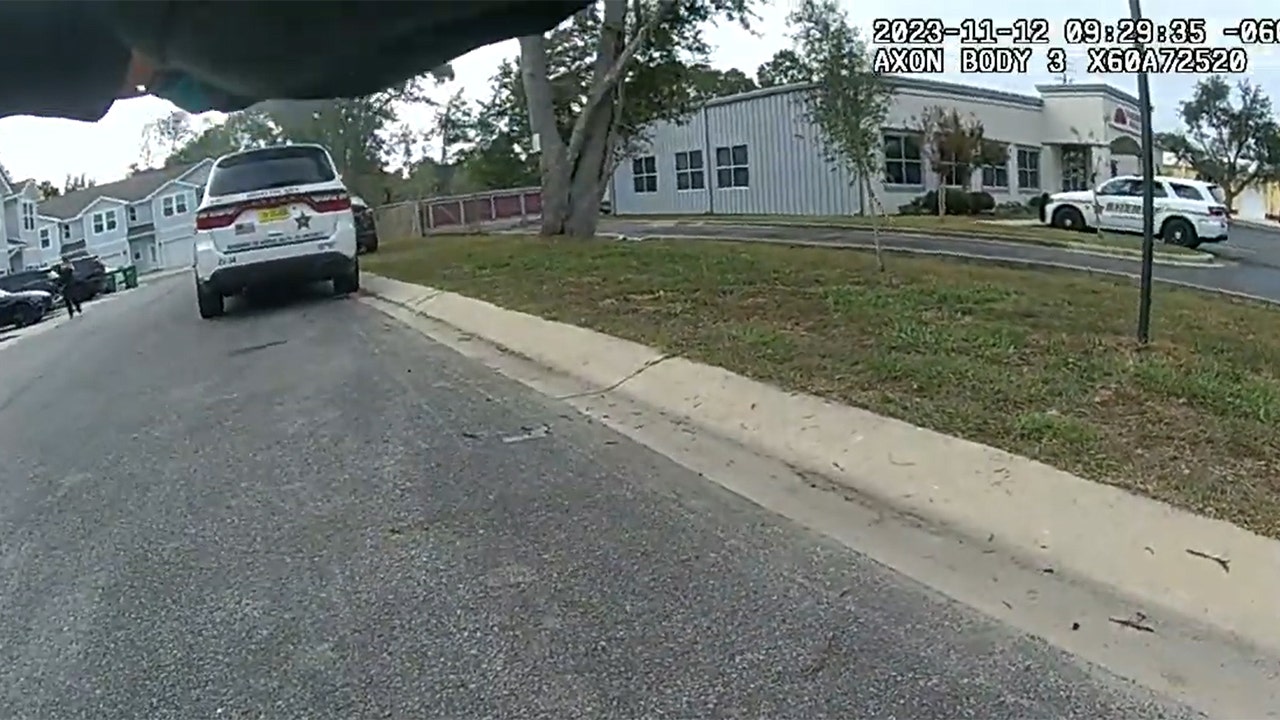Dan Wakefield, a protean and prolific journalist, novelist, screenwriter, critic and essayist who explored subjects as diverse as life in New York City in the 1950s, the American civil rights movement, the wounds that war inflicts on individuals and society, and, not least, his personal journey from religious faith to atheism and back again, died on Wednesday in Miami. He was 91.
His death, at a hospice facility, was confirmed by Will Higgins, who from 2016 to 2017 hosted a public radio show with Mr. Wakefield, “Uncle Dan’s Story Hour,” on which Mr. Wakefield told stories about his life and career from the Red Key Tavern, an old bar in Indianpolis, his hometown. His health began to decline late last year after he had a stroke, Mr. Higgins said.
Mr. Wakefield achieved early and stunning success as a writer and was still writing well into his last years. He had more than 20 books to his credit; most of them were nonfiction, but he also wrote novels. Critics and other authors praised his work as showing a reporter’s instincts combined with graceful prose.
He began to build his reputation shortly after graduating from Columbia University in 1955 with honors in English, writing articles, essays and stories for Esquire, The Nation, Playboy, Commentary and other magazines. Not long after his graduation The Nation sent him to Mississippi to cover the Emmet Till murder trial, one of the catalysts of the civil rights movement.
After the trial was over, with an all-white jury’s acquittal of the white men involved in one of the most heinous racial murders in American history, Mr. Wakefield wrote, “The crowds are gone and this Delta town is back to its silent, solid life that is based on cotton and the proposition that a whole race of men was created to pick it.”
He went on to find acclaim before he was 27, with the publication in 1959 of his first book, “Island in the City: The World of Spanish Harlem,” an account of the six months he spent living in a Puerto Rican neighborhood of Manhattan.
“To read Mr. Wakefield’s book is to walk into 100th Street in Spanish Harlem and suddenly share its life, its problems and its tragedies,” Harrison E. Salisbury of The New York Times, who had himself written about New York’s Puerto Ricans, declared in a review. Mr. Wakefield’s reporting on the neighborhood’s crime and other social problems, he added, “should bring civic conscience to a boil — if such a conscience does, in fact, exist.”
Mr. Wakefield’s next book, “Revolt in the South” (1962), explored resistance to the civil rights movement in the old Confederacy. While praising his “humility and compassion,” Claude Sitton, who covered the civil rights movement for The Times in the 1950s and ’60s, faulted the book in a Times review for “errors of fact and judgment” and for overlooking differences among the Southern states.
In 1968, The Atlantic devoted much of its March issue to an article by Mr. Wakefield, titled “Supernation at Peace and War,” about an America in conflict with itself over Vietnam.
In 1970, his first novel, “Going All the Way,” achieved a level of recognition that most writers find only in their dreams. Nominated for a National Book Award, it told the story of two young Korean War veterans returning to their homes in Indianapolis in the summer of 1954 and finding that the middle-class values they had grown up with were no longer enough.
The novel was immediately praised by critics and some major writers. Gay Talese called it “wonderful, sad and funny.” One critic said Mr. Wakefield was a bit like Norman Mailer but without the “rhetorical boom and self-idolatry.” Another pronounced it simply “a great book.”
Kurt Vonnegut, who had attended the same Indianapolis high school as Mr. Wakefield about a decade before him, wrote in a foreword that “Going All the Way” was “a richer book than ‘Portnoy’s Complaint’” and with “wider concerns and more intricate characters” than that Philip Roth classic.
Mr. Vonnegut was similarly effusive about “Going All the Way” in Life magazine. In 2015, Mr. Wakefield told The Times that he regarded Mr. Vonnegut as the “godfather” of “Going All the Way” for the praise he had heaped upon it. The two writers became good friends.
Mr. Wakefield’s other novels were “Starting Over” (1973), about a divorced man torn between a new love and his ex-wife; “Home Free” (1977), about a slacker on a cross-country trip in the countercultural America of the 1960s; “Under the Apple Tree” (1982), a coming-of-age tale set in small-town Illinois during World War II; and “Selling Out” (1985), about a college professor and serious short-story writer who goes to Hollywood to write a sophisticated television series — an experience not unlike Mr. Wakefield’s own. In 2017, Mr. Wakefield coedited a volume of Mr. Vonnegut’s complete stories.
His television credits included “James at 15,” an NBC drama about the life of a teenage boy, which he created. He quit the show early in 1978, just a few months after its premiere, after a dispute with the network over an episode in which the protagonist loses his virginity. (He accused NBC of playing down the script’s references to birth control.) The series was canceled shortly afterward.
He also wrote the screenplay for the 1997 movie adaptation of “Going All the Way,” which starred Ben Affleck, Rachel Weisz and other young actors. “Starting Over,” too, was the basis for a movie, released in 1979, with Burt Reynolds and Jill Clayburgh.
Mr. Wakefield began his writing career as a columnist for his high school newspaper in Indianapolis and a sports stringer for The Indianapolis Star. (At a convention for high school journalists, he roomed with another young sports columnist, Richard G. Lugar, who later was elected mayor of Indianapolis and to the United States Senate. Both youths were Eagle Scouts.)
Mr. Wakefield studied journalism at Harvard in 1963 and 1964 under a Nieman fellowship. His other awards included a Rockefeller Foundation grant in 1968. Over the years, he taught and lectured at several colleges and universities and numerous writers’ workshops.
Dan Wakefield — his birth name was Dan, not Daniel — was born in Indianapolis on May 21, 1932, to Ben and Brucie (Ridge) Wakefield. He was raised Presbyterian and became a Baptist. But as he morphed from an awkward, acne-afflicted adolescent into a young adult, a spiritual emptiness replaced his faith. He agonized as his parents divorced, he had troubled relationships with women, and he found little solace in talk therapy. By the time he was 24, he recalled in an essay in The Times, “I had bourboned myself into near oblivion.”
He used alcohol and drugs to fight off a “sense of blank, nameless pain in the pit of my very being,” he wrote in “Returning: A Spiritual Journey” (1988). The next year, in an essay in The Times, he wrote that his way back to belief was marked by logic — he recalled a physicist asking, “Why is there something rather than nothing?” — as well as contemplation.
On Christmas Eve 1980, he attended a service at King’s Chapel, a Unitarian Universalist church in Boston (the minister was a neighbor). He became active in the church, having found himself in the presence of a “larger force or purpose or higher power I identify as God,” he wrote in “Returning.”
Mr. Wakefield lived his final years in Indianapolis. He moved back there in 2011 after living in Miami for 17 years as a writer in residence at Florida International University. He had also lived in New York, Boston, Hollywood and Venice, Calif.
In his later years, he led workshops on spirituality at churches and synagogues across the United States and at the Sing Sing Correctional Facility in Ossining, N.Y.
His marriage to Alice Jokela Stewart ended in divorce. No immediate family members survive. He moved to Miami after his stroke.
Asked to define his philosophy of life, Mr. Wakefield quoted Philo, the ancient philosopher of Alexandria, Egypt: “Be kind, for everyone you know is fighting a great battle.” As for his life beyond writing, reading and reflecting, he said, “No golf, no horseshoes, no stamp-collecting, no hobbies.” And, he added, “No regrets.”
David Stout, a former editor and reporter with The Times, died in 2020. Alex Traub contributed reporting. Alex Traub contributed reporting.






